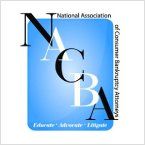Wage Garnishments
What is a wage garnishment? A wage garnishment occurs when a court or the government orders your employer to set aside some of your earnings to pay a debt.
How much of my wages can be garnished for a private debt? The amount of your wages that can be garnished for a private debt varies according to your income. Private debts include credit cards, medical bills, bank loans, and private student loans. Private debts do not include child support, taxes, or government student loans. As of July 24, 2009, the amount of wages that are exempt from garnishment is as follows.
If your disposable income is less than $217.50 per week:All of your earned income is exempt from debt collection. Your wages CANNOT be garnished.
If your disposable income is between $217.51 and $290.00 per week:The creditor may garnish whatever you earn above $217.50 per week.
If your disposable income is greater than $290.01 per week:The creditor may garnish 25% of your disposable income.
If you are already being garnished for child support or spousal support:You can still be garnished to pay a private debt, but only up to 25% of your disposable income.
What is “disposable income”? Your “disposable income” is the amount of money you take home after deductions for state and federal income taxes, federal Social Security, state disability insurance and public employee retirement systems.
What is “gross income”? Your gross income is the amount you earn before any deductions are made.
Can a creditor garnish my Social Security or other benefits to pay a private debt? No. Social Security and other benefits are completely exempt from debt collection and cannot be garnished to pay a private debt.
What is the process that a creditor uses to garnish my wages?
- All wage garnishments for private debts begin with a debt collection lawsuit.
- The creditor must obtain a judgment against you in order to garnish your wages. In California, the vast majority of judgments against consumers are obtained by default.
- Armed with a judgment, the creditor will obtain a wage garnishment order from the court clerk. This order is called a “Earnings Withholding Order.”
- Within 10 days of receiving the Earnings Withholding Order, your employer must give you a copy of the order and a copy of the Employee Instructions.
- Once you are served with Earnings Withholding Order and Employee Instructions, you can ask for an exemption by completing a Claim for Exemption form and a Financial Statement. Once completed, you must mail or deliver two (2) copies to the levying officer (in most cases the County Sheriff).
What should I do if I receive a wage garnishment notice? If you receive a wage garnishment notice, you can be sure that a creditor has obtained a judgment against you. Therefore, you should consider whether you have grounds to cancel or vacate the judgment. If you can vacate the judgment, the creditor will no longer have the ability to garnish your wages, nor can the judgment appear on your credit report. In order to vacate the judgment you will have to file court papers and appear in court at least once, and possibly more than once. For most people, it is worth it to take the time and effort to vacate the judgment.
What should I do if my wages are already being garnished? Even if your wages are already being garnished to pay a private debt, you may have the right to vacate the judgment and stop the garnishment, especially if you were never properly notified of the lawsuit. If the judgment is vacated, not only will the garnishment stop, but the court can order the creditor to return to you all the money that it took to pay the debt.
What if I can’t vacate the judgment, but I can’t afford a wage garnishment? Even if you choose not to try to vacate the judgment, you always have the right to go to court and ask the court to modify the amount of your garnishment. To do this, you need to complete a Claim for Exemption form and a Financial Statement. Once completed, you must mail or deliver two (2) copies to the levying officer (in most cases the County Sheriff). You should also consider discussing your options with an attorney. You can also contact one of our sponsoring attorneys to obtain individualized advice about your case.
Can a creditor garnish my wages and freeze my bank account at the same time? Usually not. If you are already being garnished at the maximum amount, then the rest of your wages are exempt from debt collection, even if they are deposited in a bank account.
Can I be garnished for two debts at the same time? Yes, but only up to the maximum amounts specified above. Usually, what happens with multiple garnishments is that the first creditor takes the maximum amount possible. The second creditor must wait until you finish paying the first creditor. Only then can the second creditor garnish your wages.
Can my employer fire me because of a wage garnishment? No. Your employer cannot fire you if your wages are garnished.







